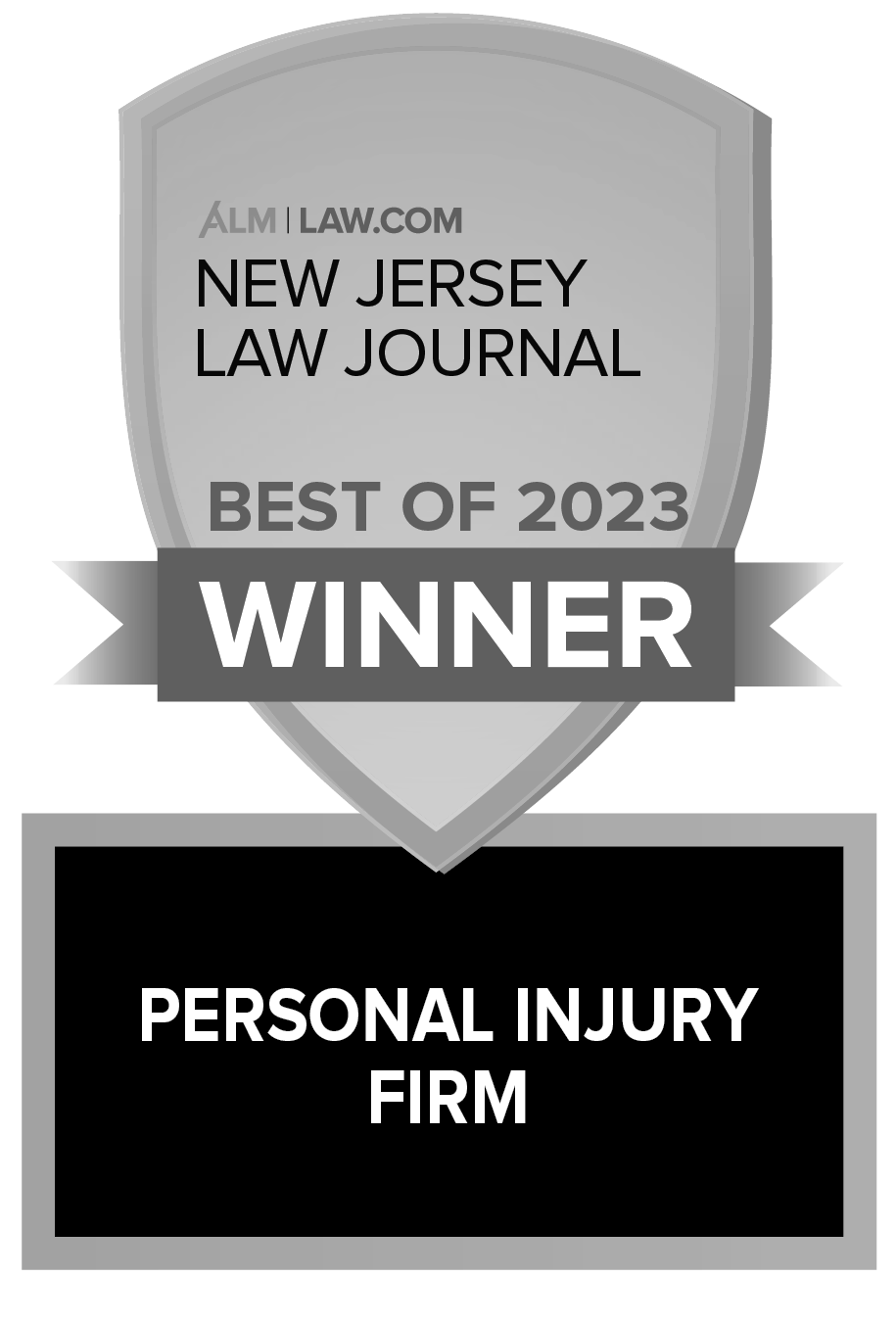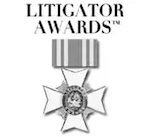General Considerations Regarding Liability Coverage in New Jersey
Car Insurance Coverage
Liability coverage is what your New Jersey auto insurance company will pay to someone else, to protect you and your assets in the event you are held responsible for an automobile accident. Obviously, insurance needs vary from person to person, but you should purchase enough liability coverage to protect your property, wages and other valuable assets in case you are sued.
Additional liability insurance need not be costly, and incremental increases in coverage are usually quite reasonable in cost. We recommend that you purchase as much liability coverage as you can reasonably afford.
Find Out What Your Case is Worth
Get Free Advice From An Experienced Motor Vehicle Accident Lawyer. All You Have To Do Is Call 973-845-4421 or Fill Out Our Free Case Evaluation Form.
Uninsured and Underinsured Motorist Coverage in New Jersey
Uninsured motorist (UM) coverage is paid to you or your family members by your own insurance company, if you are injured by an uninsured car or if you are the victim in a hit and run accident.
Underinsured motorist (UIM) coverage is paid to you or your family members by your own insurance company, if you are injured by a driver who does not have sufficient coverage to pay for all of your injuries. It is included in your UM coverage.
It is quite often the case that those at fault for New Jersey auto accidents do not have sufficient coverage to fully and fairly compensate those who are injured. In such circumstances, UM/UIM coverage protects you and your loved ones. We therefore recommend that you purchase the most coverage available under your policy (that is, an amount equal to the amount of your liability coverage). Incremental increases in UM/UIM premiums are relatively inexpensive, and are well worth the investment.
Types of New Jersey Auto Insurance Policies and Coverages
In New Jersey, there are three types of automobile insurance policies available:
- A No Limitation on Lawsuit Policy (also known as a Zero Threshold policy)
- A Limitation on Lawsuit Policy (also known as a Verbal Threshold policy)
- A Mini-Policy (also known as a Basic Policy)
No Limitation On Lawsuit Policy
Advantages
- Provides the greatest level of security to you and your family members
- Permits claims for all NJ auto accident injuries, regardless of the nature or extent of the injuries
- Does not require a sworn statement from your doctor(s), certifying that the injuries are sufficient to satisfy the verbal threshold statute
- Is not subject to dismissal by a Judge, due to the nature or permanency of the injuries, before trial
- Eliminates the defense of a lack of permanency as a total bar to recovery.
Disadvantages
- Costs more than the mini-policy and the limitation on lawsuit policy.
Limitation On Lawsuit Policy
Advantages
- Less expensive than the no limitation on lawsuit policy.
Disadvantages
- In order to recover, you must prove by objective evidence that your injuries meet one of the six (6) criteria mandated by the Verbal Threshold Statute (see description below)
- Imposes the Limitation on Lawsuit on your spouse and all of your children and step-children living in your household
- Requires you to obtain a sworn statement from your doctor(s) when filing suit, certifying that you sustained an injury in accordance with one of the six criteria noted below
- At risk of dismissal by the Court based upon only medical reports and description of the injuries.
Criteria for Injuries: If you are subject to the “limitation on lawsuit” (also known as the “verbal”) threshold, you are not permitted to recover any damages for your New Jersey auto accident injuries unless you prove that the injuries satisfy at least one of the following criteria:
- Death
- Dismemberment (loss of a body part)
- Loss of a fetus
- “Significant disfigurement” or “significant scarring”. Note: “significant” refers to the subjective view of an observer and not the opinion of the injured person)
- Displaced fracture (simple fractures do not satisfy the threshold unless they cause a “permanent injury” after healing)
- A “permanent injury” within a reasonable degree of medical probability.
Auto Insurance Policies in New Jersey
Advantages
- The least expensive type of policy
- Satisfies New Jersey’s compulsory insurance law.
Disadvantages
- Provides very little or no liability coverage to protect your wages, property and assets if someone else sues you;
- Provides only minimal coverage to pay medical expenses for injuries you and your family members may sustain in a car accident;
- A claim for injuries will be dismissed by a Judge, if he or she feels that the lawsuit/verbal threshold has not been satisfied (see criteria below);
- Creates substantial risk of having a judgment against you, and liens on property and/or garnishment of wages to satisfy judgments.
Criteria for Injuries: If you are subject to the “limitation on lawsuit” threshold, (also known as the “verbal” threshold), you are not permitted to recover any damages for your New Jersey vehicle accident injuries unless you prove that the injuries satisfy at least one of the following criteria:
- Death
- Dismemberment (loss of a body part)
- Loss of a fetus
- “Significant disfigurement” or “significant scarring”. Note: “significant” refers to the subjective view of an observer and not the opinion of the injured person);
- Displaced fracture (simple fractures do not satisfy the threshold unless they cause a “permanent injury” after healing)
- A “permanent injury” within a reasonable degree of medical probability.

“While coming highly-recommended to me, Jeff handled a motor vehicle case wherein I sustained permanent injuries from 4 pelvic fractures. He was very upfront with me about the value of my case and he succeeded in going above and beyond to make sure I received the settlement I deserved for my injuries. Jeff’s level of expertise and professionalism surpassed even my greatest expectations.”

“I just wanted to take some time to thank you and your team for all your help in the last 3 1/2 years. Your confidence, professionalism, knowledge, and efficiency in resolving this case have been greatly appreciated by my family and I.”

“I wish to convey my esteem and admiration for your professional excellence and personal manner in dealing with me regarding my auto accident case. Your attention to detail and knowledge were impressive by any standard.”
New Jersey Automobile Insurance Coverage Recommendations
We recommend that you purchase a no limitation on lawsuit, and not the verbal threshold policy. It is important that you specifically instruct your insurance agent, broker or carrier in writing to provide the no limitation on lawsuit threshold. Sometimes insurance companies offer agents and brokers incentives to write limitation on lawsuit policies, thereby limiting the insurance company’s future exposure. In such instances, some insurance agents and brokers will not even advise their customers of the choices available and/or their consequences. Moreover, if you do not expressly choose the no limitation option, you will receive the limitation on lawsuit option by default.
Failing to choose a no limitation on lawsuit policy directly and dramatically affects claims for injuries. It is our experience that insurance companies will not offer reasonable amounts to settle verbal threshold cases before trial, and they almost never make a reasonable settlement offer before seeking dismissal of the case by the Court. Some insurance companies, as a matter of policy, always take limitation on lawsuit cases to trial, significantly increasing both the time (until trial is reached) and costs incurred in bringing a claim.
At trial, insurance companies will present the testimony of defense doctors, who invariably testify to the jury that any injuries sustained are not permanent.
In short, a limitation on lawsuit/verbal threshold policy essentially eliminates the chances of obtaining a fair and prompt resolution of any claim for injuries sustained in a New Jersey automobile accident.
We recognize the burden of the additional cost involved in the purchase of a no limitation on lawsuit policy. However, we believe that the cost of not purchasing a no limitation on lawsuit policy, in light of the substantial difficulty in successfully obtaining fair, prompt and reasonable compensation for injuries, is far greater to you and your family. We strongly urge you to carefully consider all of the issues in making this very important decision which directly affects you and your loved ones.
10.5M
Motor Vehicle Accidents
7,982,298.80M
Motor Vehicle Accidents
5,424,000M
Motor Vehicle Accidents
What is the Verbal or Limitation on Lawsuit Threshold in NJ?
In New Jersey there are different types of automobile insurance policies, and various options one may choose regarding the extent of coverage afforded by those policies.
One option is called the Verbal or Limitation on Lawsuit Threshold option. Choosing this type of coverage severely limits your ability to bring a lawsuit for injuries sustained in a New Jersey automobile accident. You should not choose this option if you want to maintain your rights to sue for your injuries.
When purchasing automobile insurance in New Jersey, it is important to choose the no limitation on lawsuit option.
By choosing the Verbal or Limitation on Lawsuit Threshold option, you will save a small amount on your insurance premium, but you will severely limit your ability to bring a lawsuit for injuries sustained in an automobile accident. This limitation applies not only to the policy holder, but to all immediate family members (spouse, children and step-children) living in your household.
If you are subject to the limitation on lawsuit threshold, you are not permitted to recover any damages for your injuries unless you prove with objective evidence that the injuries satisfy one of the following criteria:
- Death
- Dismemberment (loss of a body part)
- Loss of a fetus
- Significant disfigurement or significant scarring. Note: Significant refers to the subjective view of an observer, and not the opinion of the injured person
- Displaced fracture (simple fractures do not satisfy the threshold unless they cause a permanent injury after healing)
- Permanent injury, within a reasonable degree of medical probability
The verbal threshold is a serious barrier to obtaining fair and reasonable compensation for injuries sustained in motor vehicle accidents in NJ. The first five types of injuries occur in only a small percentage of car accidents, and so most claimants will have to prove the sixth criteria on the list above, permanent injury. Insurance companies have become increasingly aggressive in defending these permanent injury cases, and generally force claimants to proceed up to the day of trial before making any settlement offer. Many of the cases must go to trial, increasing costs incurred by the claimants. Doctors are often reluctant, and some even unwilling, to provide the required sworn statements certifying the permanency of an injury, resulting in the dismissal of claims. Doctors who examine claimants for the defendants’ insurance company will, almost always, state in reports and testify at trial that the injuries are not permanent.
Frequently, insurance companies will succeed in obtaining a dismissal of a claim by a Judge before it reaches a jury, based only upon documents and medical reports. In short, injured claimants who are subject to the verbal threshold face substantial obstacles to receiving any compensation at all for injuries.
For additional information, call a New Jersey attorney at Blume Forte at 973-845-4421.













